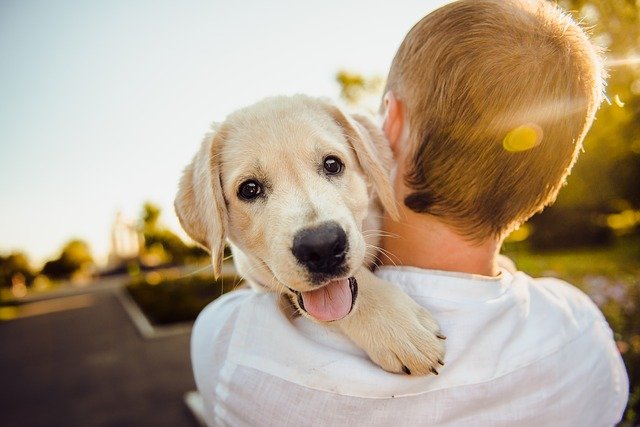When you’re a pet parent, it’s only natural to be concerned about the health and wellbeing of your animals. Dogs, cats, and other pets get sick just like humans and it’s important to know how to prevent and treat various issues. While you might be used to handling familiar, routine problems like an upset stomach or an allergic reaction, COVID-19 is an unfamiliar potential.
Can pets contract the virus from humans? Can they pass the virus to humans? What should you do if you think your pet is sick? If you own pets, here’s what you need to know about COVID-19.
Pets can contract COVID-19
There are some diseases that won’t affect domestic animals, but COVID-19 is something your pets can contract. If you think your pet is already sick with the virus, it doesn’t hurt to take precautions to protect yourself, but don’t worry too much. Vets and disease experts say it’s unlikely that a pet will pass the virus onto a human.
“Pets can contract COVID-19 from humans,” says Dr. Jenica Wycoff from Sadie Vet in Portland. “However, the risk of humans contracting the virus from pets is low.”
When protecting your pet, don’t put a mask on them, as this can be harmful. Also don’t bathe your pet in any kind of chemical disinfectant, hydrogen peroxide, alcohol, cleaning products, or wipes made for household cleaning. This can harm or even poison your pet.
Instead, bathe them as you normally would if you feel the need. Although, no evidence has been found to support the idea that the virus spreads from animal fur, hair, or skin. If you don’t know what to use for your pet’s bath, talk to your veterinarian. You can always default to a natural, plain, unscented shampoo if your pet is sensitive.
Avoid close contact with your pet if you test positive
If you’re sick and think you might have the virus, or if you’ve tested positive, it’s a good idea to protect your pet by avoiding close contact. This might be hard if you normally share a bed, share your food, or if they’re used to snuggling with you during the day. It’s not easy to isolate a pet from affection since they won’t know what’s going on, but it’s for their wellbeing and is only temporary.
Most pets don’t get seriously ill from COVID-19
Although many pets worldwide have tested positive for the virus, many of them never showed symptoms. Not all pets infected will get sick, and most who have gotten sick only had a mild illness and made a full recovery. It’s rare for pets to become seriously ill from the virus.
Symptoms that indicate your pet might have the virus
If your pet displays any of the following symptoms, they might have COVID-19:
· Diarrhea
· Vomiting
· Loss of appetite
· Fever
· Coughing
· Sneezing
· Runny nose
· Eye discharge
· Trouble breathing
· Lethargy
If your pet is showing any of these signs, call your vet and get their opinion on whether you need to go to the animal hospital, schedule an appointment, or treat the issue at home with their advice.
If you’re also sick with COVID-19, let your vet know so they can help you without putting others at risk. Many vets now offer visits over Zoom and some will provide service at your car in the parking lot. Your vet may be able to help without seeing your pet in person.
Tips for taking care of a pet sick with COVID-19
Did your pet test positive, or are they showing symptoms? Here’s what you should do.
1. Monitor your pet’s symptoms
If your pet shows symptoms, whether or not you know it’s COVID-19, monitor those symptoms closely. If their symptoms worsen, call your vet immediately.
2. Isolate your pet
Isolate your sick pet as best as possible to keep them away from other pets and humans in the house. If possible, isolate your pet in a larger area than just a bedroom or bathroom. Give them space to run around and play by closing off connecting hallways and doorways with baby gates.
3. Isolate yourself
If you can’t isolate your pet, try isolating yourself when you’re home by bringing everything you need into your bedroom and closing the door. If you have a dog that isn’t trained to use potty pads, you’ll need to take them outside, but avoid contact as much as possible.
Don’t worry too much – pets recover quickly
Whether your pets have contracted the virus or not, don’t worry because most pets never experience severe symptoms and they recover fast. However, if your pet is sick or you have any concerns, talk to your veterinarian first.




